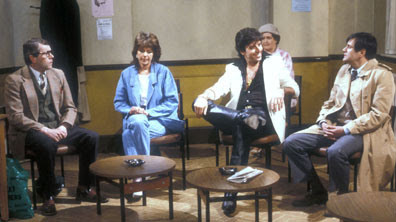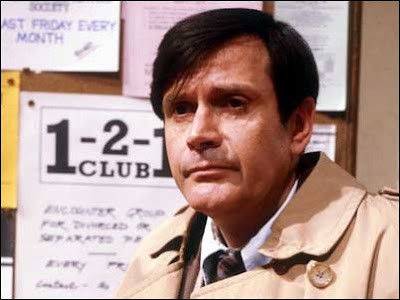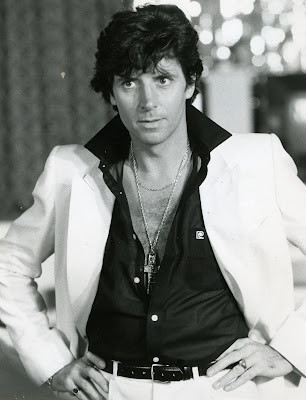It’s a strange twist of fate that revisiting the classic UK sitcom Dear John coincided with the passing of its creator, John Sullivan. This prompted a deeper look into a show that, while fondly remembered by many, often sits in the shadow of Sullivan’s more colossal hit, Only Fools and Horses. After watching Dear John again after two decades, the charm and wit of this British comedy remain undeniably potent. This isn’t about the American remake; this piece is a celebration of the original UK Dear John sitcom, a series that deserves far more recognition than it typically receives.

A promotional image for the UK sitcom Dear John, featuring the main cast in a group shot, highlighting the show’s ensemble comedy.
What’s fascinating about revisiting Dear John is how memory plays tricks. Specific plot details had faded, yet the moment an episode began, the storylines and jokes flooded back. It solidified the understanding that Dear John is a sitcom teetering on the edge of greatness. Its tragically short run of only 14 episodes, cut short by the untimely death of lead actor Ralph Bates, feels like a genuine loss for British comedy. The format was ripe for longevity, capable of delivering laughs for years. Despite its quality, Dear John remains strangely overlooked, especially when compared to the monumental status of Only Fools and Horses. It’s a curious case of comedic neglect.
Upon re-watching, certain aspects became even more apparent, particularly the potential influence of Dear John on later sitcoms, most notably Father Ted. The central character, John, embodies a Ted-like persona – the seemingly rational individual surrounded by absurdity, whose primary flaw is a lack of self-awareness. The parallels extend beyond character archetypes. Dear John frequently employs humor derived from small lies snowballing into increasingly elaborate deceptions, a comedic device masterfully used in Father Ted. Even specific jokes resonate across both series, like the recurring gag of a dreadful disco with a limited music selection, echoing in the Father Ted episode “Rock-a-Hula Ted.” Mrs. Arnott, the perpetually silent character in Dear John, feels like a precursor to the iconic Father Jack, both deriving humor from their extreme, understated personalities.

A scene from Dear John showcasing Ralph Bates as John, the central character navigating his post-divorce life in the sitcom.
The character of John, more downtrodden and put-upon than initially remembered, adds a layer of depth. There’s a distinct darkness to his post-divorce existence, perhaps amplified by the casting of Ralph Bates, known for his roles in Hammer horror films, an unconventional choice for a sitcom lead. His world is populated by relentlessly awful individuals: a selfish ex-wife and friends who are more detrimental than helpful. This bleak backdrop drives him to seek solace in the 1-2-1 Club, a support group for divorcees, where shared misery and interpersonal annoyances become comedic fodder. Interestingly, initial viewings might inspire rooting for John and Kate to connect romantically. However, Belinda Lang’s character, Kate, now appears less sympathetic, lacking any real chemistry with John and ultimately disappearing before the series conclusion. Ralph, the perpetually dull loner with his unchanging terrapin companion, also feels less remarkable in retrospect, facing stiff competition from similar sitcom characters over the years.

Kirk St Moritz, portrayed in a promotional still from Dear John, embodying the hilariously flawed and arrogant character who is a standout in the sitcom.
The true comedic stars of Dear John are undoubtedly Kirk St Moritz and Louise. Kirk, a character who, given more series, could have ascended to the pantheon of comedy greats, is a masterclass in comedic creation. He is utterly devoid of redeeming qualities – arrogant, dim-witted, egotistical, and a fantasist whose every line is crass and insulting. His brilliance lies in the underlying performance; it’s all an act. Beneath the facade is a lonely man living with his Irish mother (whose voice bears an uncanny resemblance to Mrs. Doyle from Father Ted), essentially a Ralph-like character but stripped of any endearing charm. John’s awareness of Kirk’s true nature, yet inability to reveal it, is a comedic goldmine that the series could have mined endlessly.
Louise, the assertive leader of the 1-2-1 Club, is another standout, famed for her iconic catchphrase, “were there any sexual problems?”. Her undisguised glee in prompting others to divulge their deepest insecurities for public amusement is perpetually captivating. While Dear John‘s run was tragically brief, its 14 episodes are a testament to quality over quantity, surpassing the comedic output of many sitcoms with far longer lifespans. It’s time to rediscover and appreciate this underrated gem of British comedy.

